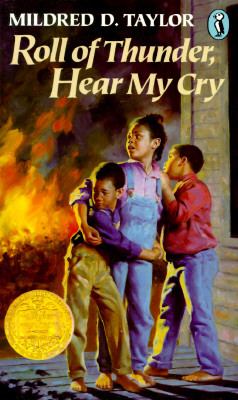Academics alone will not make you successful
I was asked to give a speech to new high school inductees into the National Honor Society. I was asked to share the speech so I have posted it here. Enjoy!
If there was an award for something, I got it – other than attendance and being on time. Everything from being the person who checked out the most library books in elementary school to earning a top spot in my high school graduating class, you name it. I took honors classes, AP classes and got a jump start on my undergraduate degree. But what I realized is a lot of those things didn’t matter.
Once I got to college, there were other skills I needed to be successful. Some of them I had. Others I had to figure out. I was around a bunch of people who were just as smart or smarter than me. I could no longer wait to the last minute to do a report or finish my homework during lunch. I needed time management skills. I needed to prioritize my activities. I needed something other than memorizing facts and mathematical strategies. My first day in college marked a very clunky kind of journey of learning skills and ridding myself of habits in order to be successful.
As a researcher, I’m going to share some findings with you about success. Is that ok with you? Research tells us that many students who have the highest grades or highest SAT and ACT scores will not complete college. Surprised are you? Not because they aren’t smart, but they don’t have what some researchers call non-cognitive skills. There are several non-cognitive skills that aid in success, but I will offer two that I find the most fascinating: grit and growth mindset.
 First, is grit. I watched many of my brilliant classmates go to college, some succeeded, some failed. I realized the difference between the two groups was fortitude. Perseverance. Resilience. Or an a word grit. Dr. Angela Duckworth
found that the difference between successful and unsuccessful students, teachers, and even spelling bee competitors was their ability to set a goal that they know will take a long time to reach, sticking with it and never giving up.
First, is grit. I watched many of my brilliant classmates go to college, some succeeded, some failed. I realized the difference between the two groups was fortitude. Perseverance. Resilience. Or an a word grit. Dr. Angela Duckworth
found that the difference between successful and unsuccessful students, teachers, and even spelling bee competitors was their ability to set a goal that they know will take a long time to reach, sticking with it and never giving up.
It’s treating life like a marathon and not a sprint. Grit is the ability to withstand trials and challenges. Grit is not about getting rewards quickly. It’s delayed gratification. It’s important to note that grit is not connected to talent. There are talented people who have grit, but gritty people aren’t always talented. They work hard to learn what they don’t know and are resourceful in order to reach their goals.
Second, is growth mindset. No matter if I taught middle school students or college students, there were always students afraid of a bad grade. They would do everything in their power to get an “A”. Or I’ll have students that believe they were bound to be forever incapable of doing well in school.  Research tells us such closed-minded approaches to learning is called a fixed mindset. People with a fixed mindset believe that success means they’re smart, and failure means they’re dumb. Not only does that inhibit academic success, but companies don’t prefer applicants who think like this. Research tells us that a more successful approach is having a growth mindset.
Research tells us such closed-minded approaches to learning is called a fixed mindset. People with a fixed mindset believe that success means they’re smart, and failure means they’re dumb. Not only does that inhibit academic success, but companies don’t prefer applicants who think like this. Research tells us that a more successful approach is having a growth mindset.
Dr. Carol Dweck , the researcher behind this approach says that people with a growth mindset believe that intelligence can be developed with practice, not something you are born with. People with growth mindsets don’t think of themselves as winners or failures but learners instead. They don’t ask did I win or did I lose. They ask, what did I learn and how can I do it better next time? A growth mindset approach is also desired in many career fields including engineering. Before top companies like Boeing and NASA hire anyone, even a suma cum laude graduate, they want to know are they curious and willing to try something different without a known outcome. Because if they have these traits they can problem solve. They found that students with the best GPA or highest SAT scores are really great at taking direction, but not always the best at taking initiative.
 They want to know that you have tried something, failed, learned something from it and are willing to try again. They want to know, when have you made something from nothing? They want risk takers. That means they may not take the students that carefully selected the classes that they knew they were going to get A’s in. Rather, they may take that student who dove head first in a class that they knew nothing about, but was willing to learn and give their best effort. Sometimes those risk takers end up with an “A.” Sometimes it’s an “F,” but they took a risk and learned something about themselves and better learning strategies for the next course.
They want to know that you have tried something, failed, learned something from it and are willing to try again. They want to know, when have you made something from nothing? They want risk takers. That means they may not take the students that carefully selected the classes that they knew they were going to get A’s in. Rather, they may take that student who dove head first in a class that they knew nothing about, but was willing to learn and give their best effort. Sometimes those risk takers end up with an “A.” Sometimes it’s an “F,” but they took a risk and learned something about themselves and better learning strategies for the next course.

One way companies are learning if applicants have grit or a growth mindset is by conducting interviews that require you to tell stories that illustrate your ability to work with others under challenging circumstances, learn from your mistakes, and demonstrate initiative. I know this because my brother is an engineer and recently applied to a position at Lockheed Martin. Lockheed Martin is one of the world’s premier companies in the aerospace, defense, security, and technologies industry and is the world’s largest defense contractor. Did they ask my brother about the university he attended, his internships or GPA? 
No. Instead they said, “Talk about a time when you had to work closely with someone whose personality was very different from yours. Give me an example of a time you faced a conflict while working on a team. How did you handle that? Tell me about a time you failed. How did you deal with this situation?”
So to my fellow National Honor Society members, I’m proud of you. You have done great work. But don’t rest on your laurels. Because I guarantee you, you have classmates not in the National Honor Society that have skills, ideas, and approaches to life that you should learn from. If you are a student who happens to not be inducted today. Don’t worry. It’s time to figure out how to use your intelligence and life experiences to make you successful inside and outside of the classroom.
So, I leave you with my definition of excellence. To be excellent means to be a divergent thinker.  To be able to see multiple answers, multiple possibilities, and multiple ways of reaching success. But you can’t just visualize those paths from a distance. You take a risk and take the journey. Use those bumps in the road to shape your perseverance. And as you travel that road you take note of the best ways to travel that road thus expanding your learning. Everything you need to be successful is already in you. It’s up to you to challenge yourself to use it. You have stories to tell.
To be able to see multiple answers, multiple possibilities, and multiple ways of reaching success. But you can’t just visualize those paths from a distance. You take a risk and take the journey. Use those bumps in the road to shape your perseverance. And as you travel that road you take note of the best ways to travel that road thus expanding your learning. Everything you need to be successful is already in you. It’s up to you to challenge yourself to use it. You have stories to tell.
Post speech addendum:
There is a sector of people who see Grit and/or Growth Mindset as racist. I argue that the concept itself is not inherently racist. The problem is how some people choose to apply it to certain cultural and socioeconomic groups. The implementation of these concepts as development metrics for impoverished students, romanticizes poverty, justifies poverty as character development, assumes that poor students don’t already understand delayed gratification, and ignores systems of oppression that disproportionately place some groups of students in poverty. But to create an academic evaluation system that allows students to have a safe place to take academic risks, give room to fail and learn from their mistakes and to remind students that they just need to build their skills to put their intellect to the best use is a productive use of Grit and Growth Mindset.
Want more? Check this out!
Stuart Brown: Play is more than fun: A pioneer in research on play, Stuart Brown says humor, games, roughhousing, flirtation and fantasy are more than just fun. Plenty of play in childhood makes for happy, smart adults — and keeping it up can make us smarter at any age.
Tech Tuesday: Cell-Site Simulators, Artificial Intelligence: Human skills will remain relevant in the workplace despite advancements in artificial intelligence and robotics and much more.
How Much Can Children Teach Themselves ? Listen to this GREAT story from Dr. Sugata Mitra about initiative and new ways of learning from kids in Indian slums.











